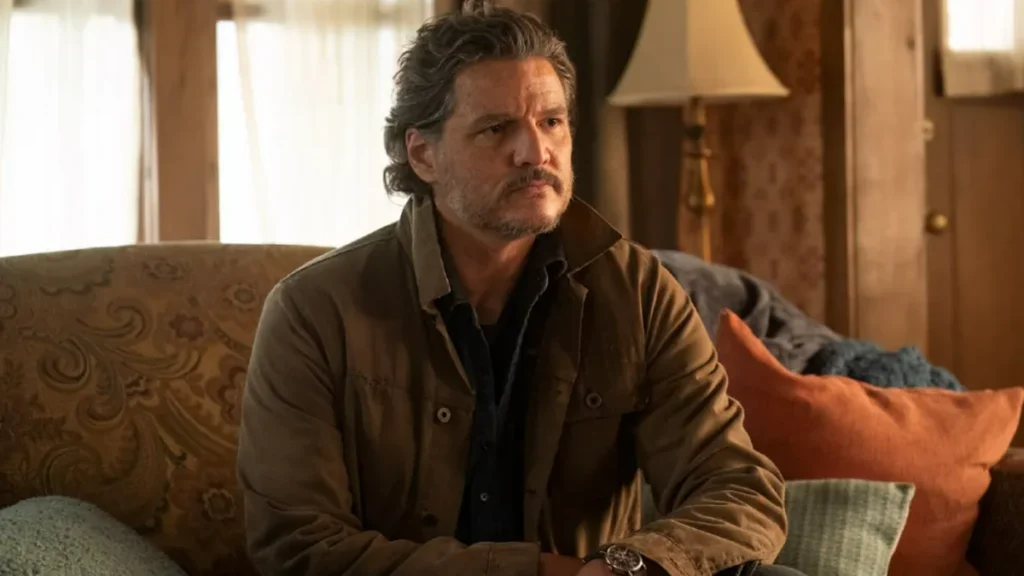The Last of Us’ Season 2 premiere review: Pedro Pascal, Bella Ramsey shine in strong opening for sophomore season

The Last of Us Season 2 Premiere: Future Days Kicks Off with Guilt, Grief, and the Promise of Revenge
HBO’s The Last of Us returns with a gripping and emotionally loaded Season 2 premiere titled “Future Days” — a name borrowed from the haunting Pearl Jam track that Joel once played for Ellie. While fans braced themselves for a controversial and heartbreaking moment (one that shook the gaming community), the showrunners hold back — at least for now. Instead, the episode offers something arguably more powerful: a slow-burning reintroduction to guilt, grief, trauma, and the seeds of vengeance.
No Shocking Death — But a Heavy Shadow
Before its release, speculation about the show’s second season revolved around a particular death scene that shocked gamers in The Last of Us Part II. For those familiar with the story, the anticipation of that moment has been looming like a dark cloud. However, “Future Days” smartly swerves expectations and chooses not to open with brutality but with weighty silence, internal conflict, and emotional tension.
Instead of jumping into action or providing a neat recap, the show picks up exactly where Season 1 left off. Joel (Pedro Pascal), bloodied and worn but fiercely protective, swears to Ellie (Bella Ramsey) that everything that happened at the hospital — including his mass killing of the Fireflies — was necessary. Ellie, still unsure, pauses just a second longer than comfort allows before replying with a simple “okay.”
That moment says it all. It’s not a grand explosion, but a subtle crack in trust — one that may widen into a canyon as the story progresses.
Nature Reclaims, But Humanity Struggles
Visually, the episode reminds us once again of the show’s breathtaking cinematography. A shot of giraffes grazing calmly in a crumbling cityscape — a callback to Season 1’s most peaceful moment — sets the tone for what’s to come. The animals roaming freely through deserted streets hint at the world healing in its own way, even as the people in it struggle to move forward.
The quiet beauty of the scene is interrupted by a shift to another kind of aftermath — one filled with human sorrow and smoldering rage. The camera moves to the Fireflies, mourning their fallen comrades. Their loss is not faceless. It’s personal, and the emotional toll is etched clearly on one young woman’s face.
Enter Abby: The Storm on the Horizon
Abby, portrayed by Kaitlyn Dever, makes her first major appearance in this episode. She doesn’t need much screen time to make an impression. She is furious, grieving, and determined. As she mourns her father — one of the surgeons Joel killed — she quietly, but firmly, vows to “kill him slowly.”
That moment sets up what is likely to become the emotional and narrative core of Season 2: a tale of revenge. The writers waste no time in showing us that Abby is not a typical villain. She’s layered, driven not just by hatred but by pain and loss — much like Joel once was. Her introduction feels deliberate and grounded, preparing the audience for the moral complexities ahead.
Evolving Threats in a Mutating World
While human conflict takes center stage, the world itself hasn’t stopped changing. The infected are evolving, and so is the Cordyceps fungus. The premiere teases this through chilling background sequences — shadowy movements, unsettling sounds, and offhand mentions of new infected behavior.
What once felt predictable (as much as deadly mushroom zombies can be) now feels more threatening. The infection has adapted. It’s learning. And the survivors will have to evolve as well.
This subtle world-building choice raises the stakes without needing loud jump scares or massive infected attacks. It reminds viewers that the greatest danger may not always be human, though humans often find a way to be the cruelest monsters of all.
Joel and Ellie: A Bond Built on Broken Truth
Pedro Pascal and Bella Ramsey once again prove that their pairing is the emotional lifeline of this show. Their chemistry is unshakable, but cracks are beginning to show. Joel tries to return to normalcy, talking about patching up guitars and finding some peace. Ellie, on the other hand, grows quieter. Her nightmares return. Her gaze lingers too long. She doesn’t believe Joel — not entirely — but she wants to. And that’s what makes it so heartbreaking.
Joel’s lie, which was once a shield of love, now feels like a ticking time bomb. And when it goes off, no one will walk away unscathed.
A Mature, Confident Opener
“Future Days” doesn’t rush. It doesn’t shock for the sake of it. It walks confidently into Season 2 with patience and purpose. By avoiding the much-anticipated tragic moment (for now), the writers give space for grief, guilt, and complexity to settle in.
We see Abby as a daughter before she becomes an avenger. We see Ellie as a child grappling with loss before she becomes someone fueled by anger. The show asks us to care before we choose sides — and that is powerful storytelling.
What Lies Ahead
The groundwork is set. Season 2 promises to challenge its characters — and its audience — more than ever before. Themes of revenge, forgiveness, trauma, and justice are poised to take center stage. But what makes The Last of Us so compelling is its refusal to offer easy answers.
There are no pure heroes or villains here — just survivors doing their best (or worst) to live in a shattered world.
If “Future Days” is any indication, the season ahead will not just be about what happens — but why it happens and how it feels when it does.






